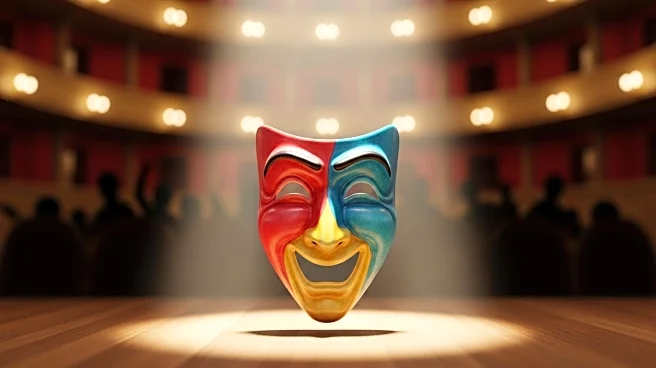What's Happening?
Earlier this month, a group of prominent comedians, including Dave Chappelle, Kevin Hart, and Pete Davidson, performed at the inaugural Riyadh Comedy Festival in Saudi Arabia. The event, claimed to be the largest comedy festival globally, featured over 50 international comedians and was organized by the Saudi government to boost local economic investment and improve its global image. However, the participation of these comedians has sparked criticism from peers like Marc Maron and David Cross, who argue that performing in Saudi Arabia helps to mask the country's human rights violations. Critics highlight the irony of comedians who often complain about censorship in the U.S. performing in a country where free speech is heavily restricted.
Why It's Important?
The participation of high-profile comedians in the Riyadh Comedy Festival underscores the complex relationship between entertainment and politics. While the event aims to showcase cultural exchange, it also raises ethical questions about the role of artists in potentially legitimizing regimes with poor human rights records. The controversy highlights the ongoing debate within the comedy industry about the balance between artistic freedom and social responsibility. This situation could influence public perception of the comedians involved and spark broader discussions about the ethical implications of performing in countries with restrictive policies.
What's Next?
The fallout from the festival may lead to increased scrutiny of entertainers who choose to perform in countries with controversial human rights records. Comedians and other artists might face pressure to reconsider their participation in such events, potentially leading to a shift in industry norms regarding international performances. Additionally, the festival's reception could influence future cultural initiatives by the Saudi government as it seeks to improve its global image.
Beyond the Headlines
The Riyadh Comedy Festival highlights the broader issue of how cultural events can be used as tools for political soft power. By hosting international artists, Saudi Arabia aims to project a more progressive image, despite ongoing human rights concerns. This strategy reflects a growing trend among authoritarian regimes to use cultural diplomacy to mitigate criticism and enhance their international standing.











